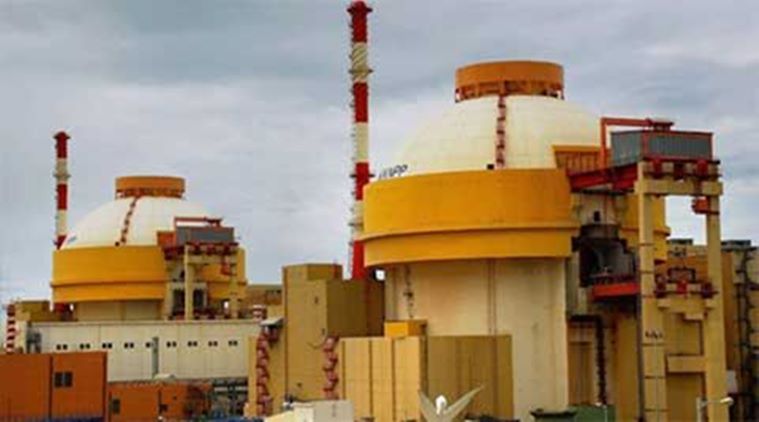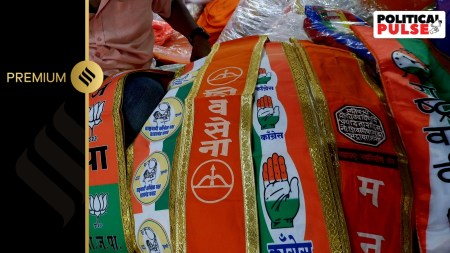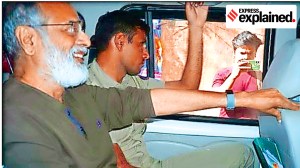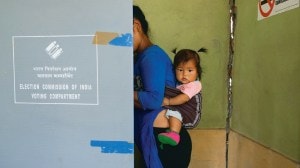- India
- International
Civil Liability for Nuclear Damage: Now, a dedicated product to cover suppliers’ risk
The Indian Nuclear Insurance Pool, launched by the state-owned General Insurance Corporation-Reinsurer (GIC-Re) and other Indian insurance companies in June last year to offer an insurance product for NPCIL for covering the operator’s liability under the provisions of the Civil Liability for Nuclear Damage (CLND) Act 2010, will subsequently launch a separate product to specifically […]
 The CLND Act also provides for state-run NPCIL, which operates all atomic power plants in India, to seek compensation from suppliers in an accident due to faulty equipment.
The CLND Act also provides for state-run NPCIL, which operates all atomic power plants in India, to seek compensation from suppliers in an accident due to faulty equipment.
The Indian Nuclear Insurance Pool, launched by the state-owned General Insurance Corporation-Reinsurer (GIC-Re) and other Indian insurance companies in June last year to offer an insurance product for NPCIL for covering the operator’s liability under the provisions of the Civil Liability for Nuclear Damage (CLND) Act 2010, will subsequently launch a separate product to specifically cover the risks of the suppliers under this Act.
“The INIP will initially launch the insurance product for NPCIL to cover the operator’s liability under the provisions of the Civil Liability for Nuclear Damage (CLND) Act 2010. A separate product will be subsequently launched to cover the risks of the suppliers under this Act,” a senior DAE official said. While the broad contours of the policy has been drawn up by insurers and has also bagged IRDA (Insurance Regulatory and Development Authority of India) approval, NPCIL (Nuclear Power Corporation of India Limited) has sought changes in some conditions and the insurers are considering this input, officials said.
The move to have a separate product for suppliers comes at a time when the state-owned project developer NPCIL is facing an equipment sourcing crunch for two of its under-construction indigenous reactor technology-based projects in Gujarat and Rajasthan, with even domestic equipment vendors dragging their feet on supply of components for nuclear power plants. Representatives of equipment vendors have repeatedly made pointed references to the looming uncertainties over the Civil Liability Nuclear Damage Act (2010), with the liability issue being flagged as a concern by equipment firms who have said that even companies that do not supply directly to NPCIL but are sub-suppliers (supplying components to an NPCIL vendor) are increasingly unwilling to supply equipment as NPCIL is refusing to give them indemnity from the liability provisions of the Act. The nuclear liability law was enacted with the intention of tying-down foreign suppliers to a liability regime, but is being perceived as creating unlimited liability, both in terms of time and costs, for vendors. The contentious clauses in the law include 17 (b), which says the operator (NPCIL) has the right to recourse against suppliers in case of a nuclear accident, and clause 46, which says the suppliers can be sued under any other Indian law as well as by citizens at large.
[related-post]
This comes at a time when construction work is underway on four indigenous 700 MW Pressurised Heavy Water Reactors, Units – 3&4 of Kakrapar Atomic Power Project (KAPP 3&4) at Kakrapar in Gujarat and Units-7&8 of Rajasthan Atomic Power Project (RAPP 7&8) at Rawatbata, also in Rajasthan. The erection of various components and equipment are progressing in parallel and deliveries of key equipment to the sites have commenced.
Approval has also been accorded for two Light Water Reactors (LWRs) in collaboration with Russian Federation (Kudankulam Nuclear Power Project Units-3&4; 2X1000 MW) at Kudankulam, Tamil Nadu, and two indigenous PHWRs, Gorakhpur Haryana Anu Vidyut PariyojanaUnits-1&2; 2X700 MW, at Gorakhpur, Haryana.

GIC-Re and 11 other non-life insurers had formed the India Nuclear Insurance Pool in June 2015 that provides for Rs 1,500 crore as maximum liability for nuclear damage
New Indian Assurance will issue the policy and manage the cover for the operators and suppliers, on behalf of all direct insurance companies participating in the pool.
Apart from GIC Re, New India, Oriental Insurance, National Insurance and United India Insurance from the public sector, and ICICI Lombard General Insurance, Tata AIG General, Reliance General Insurance, Chola MS General Insurance, IFFCO Tokio General Insurance, SBI General and Universal Sompo General from the private sector, have contributed to the Pool.
The policies offered will be a nuclear operators liability, insurance policy and a nuclear suppliers’ special contingency (against right to recourse) insurance policy. Reinsurance support had come from Nuclear Risk Insurer from London for the pool, which is expected to develop into a one-stop facility for covering all nuclear risks.
The pool will be 27th such market pool globally. It is expected to address third-party liability insurance to begin with and later expand into property and other hot zone (inside reactor areas) risk. This will cover both operators and suppliers. At present, only cold zones (outside reactor areas) are covered.
The idea of forming a pool was floated in early 2013 and got stuck due to differences among stakeholders on certain clauses. In 2010, Parliament passed The Civil Liability of Nuclear Damages Act, which creates a liability cap for nuclear plant operators for economic damage in the event of an accident.
This pool will provide the risk transfer mechanism to the operators and suppliers to meet their obligations under the CLND Act. At a later stage, this pool also looks to provide reinsurance support to other such international pools.
The CLND Act also provides for state-run NPCIL, which operates all atomic power plants in India, to seek compensation from suppliers in an accident due to faulty equipment.
May 16: Latest News
- 01
- 02
- 03
- 04
- 05






































